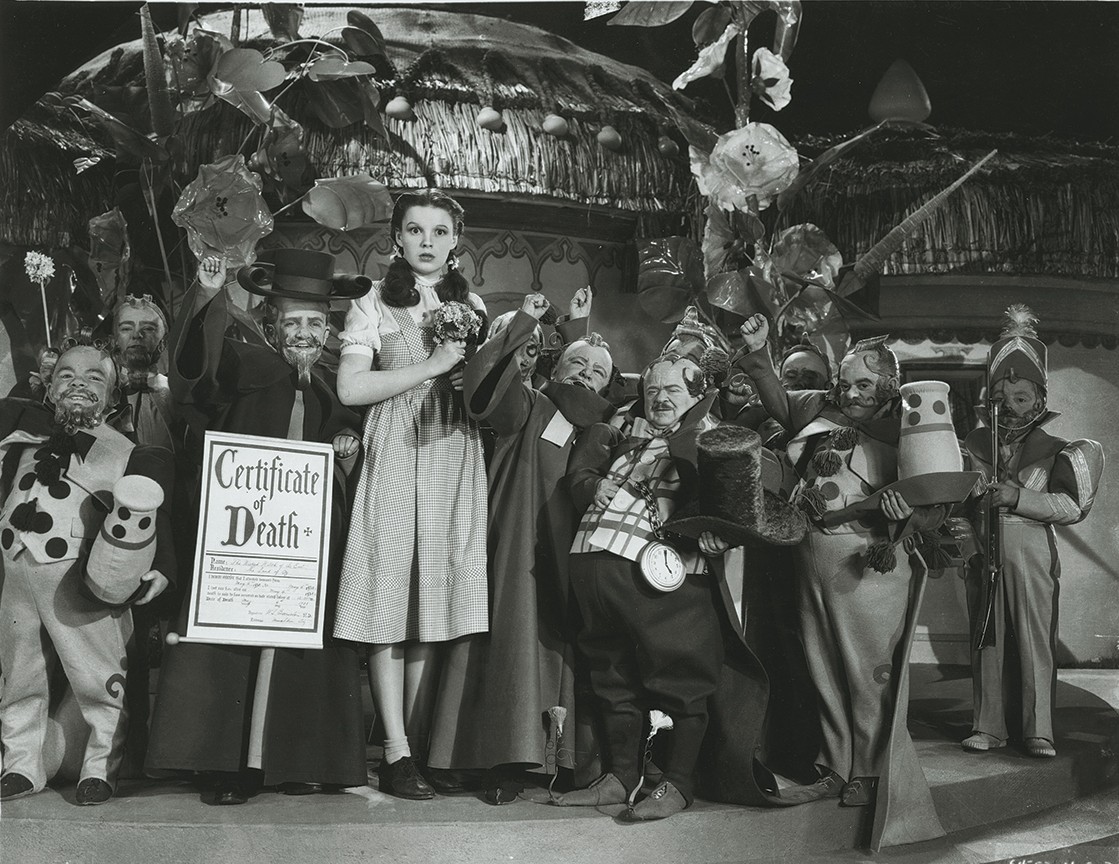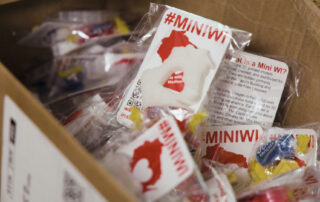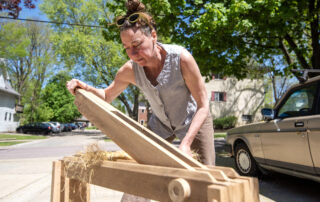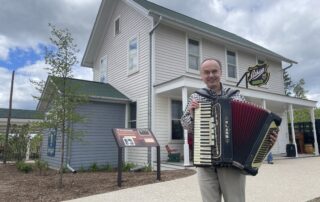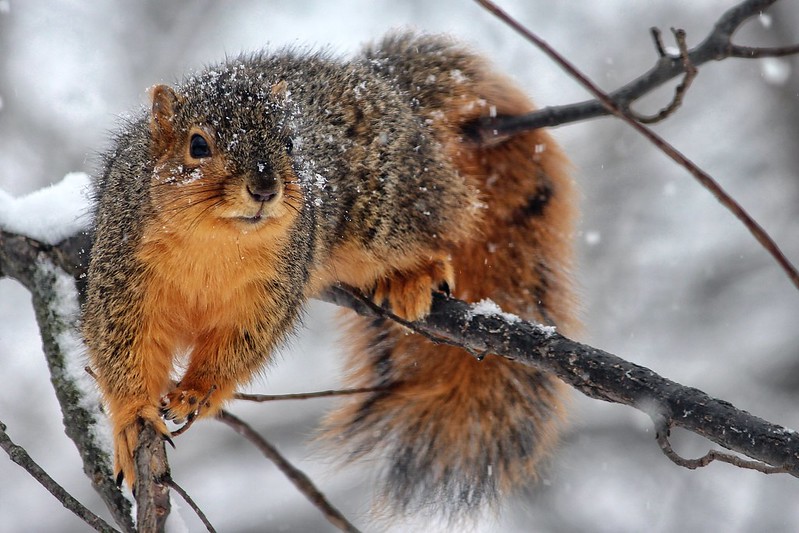“The Wizard Of Oz” is a beloved, iconic film that has captivated generations of fans. Author Dean Robbins of Madison tells the story of Farmington, Wisconsin native, Meinhardt Raabe, whose 13-second role as the coroner in the movie was part of a long and fulfilling life.
==
Meinhardt Raabe appeared in only one movie, 1939’s “The Wizard of Oz.” But as the coroner of Munchkinland, he makes an impression.
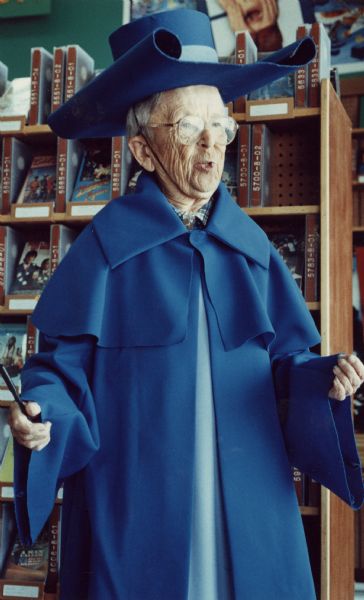
Portrait of an elderly Meinhardt Raabe wearing a costume similar to the one he wore in “The Wizard of Oz” as the coroner of Munchkinland. A shelf of videotapes is behind him. (Courtesy of Wisconsin Historical Society)
The role was enough to ensure Raabe a seven-decade career that included speaking engagements, an autobiography, mountains of fan mail, and a star on the Hollywood Walk of Fame. When he died in 2010 at age 94, obituaries ran in major media outlets. And all because of a mere thirteen seconds onscreen.
Meinhardt was born in 1915 on a farm in Farmington, Wisconsin. As a teenager at Johnson Creek High School, he stopped growing at about 3 1/2 feet.
In 1934, he worked as an announcer at the Chicago World’s Fair to put himself through school at Watertown’s Northwestern College. Then he transferred to the University of Wisconsin and graduated with a business degree in 1937.
Raabe hoped to be an accountant but, despite his good grades, faced discrimination, as he told WHYY’s “Fresh Air” in 1980.
“At that time, the public conception of little people or midgets was that, while they didn’t come out and say so specifically, their idea was that because we didn’t grow up to normal size, we couldn’t have developed normally mentally either,” said Raabe.
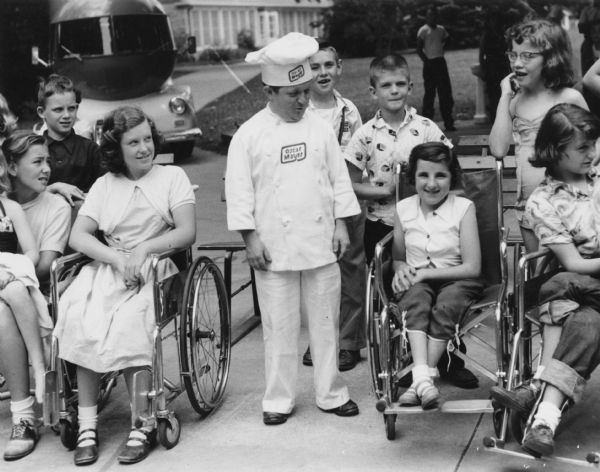
Meinhardt Raabe as Little Oscar standing with a group of children, some in wheelchairs, at Easter Seals Camp Wawbeek. The Wienermobile is in the background on the left. (Courtesy of Wisconsin Historical Society)
Oscar Mayer recognized Raabe’s talent as a performer, honed at the World’s Fair. The company hired him to tour the country as Little Oscar, “the world’s smallest chef.” In 1938, however, Raabe requested time off from his job when MGM Studios put out a call for little people to appear in a certain movie.
The studio cast more than a hundred actors to play Munchkins in “The Wizard of Oz” and needed nine for speaking parts. Raabe’s featured role as the coroner was no fluke, as he told “Fresh Air.”
“I feel the reason I was selected is that I had done quite a bit of public speaking, both at school, for clubs and things, during my school years. So, I had possibly a little better enunciation and more emphatic delivery than some of the others,” Raabe suggested.
In the Munchkin scene, Raabe’s character must confirm that the Wicked Witch of the East is authentically deceased. Outfitted in a pointy beard and purple hat, he lends the coroner a stately presence while unfurling the death certificate and reciting his famous lines:
“As coroner, I must aver,
I thoroughly examined her.
And she’s not only merely dead,
she’s really most sincerely dead!”
In August 1939, Raabe returned to Watertown as a special guest for “The Wizard of Oz’s” local premiere.
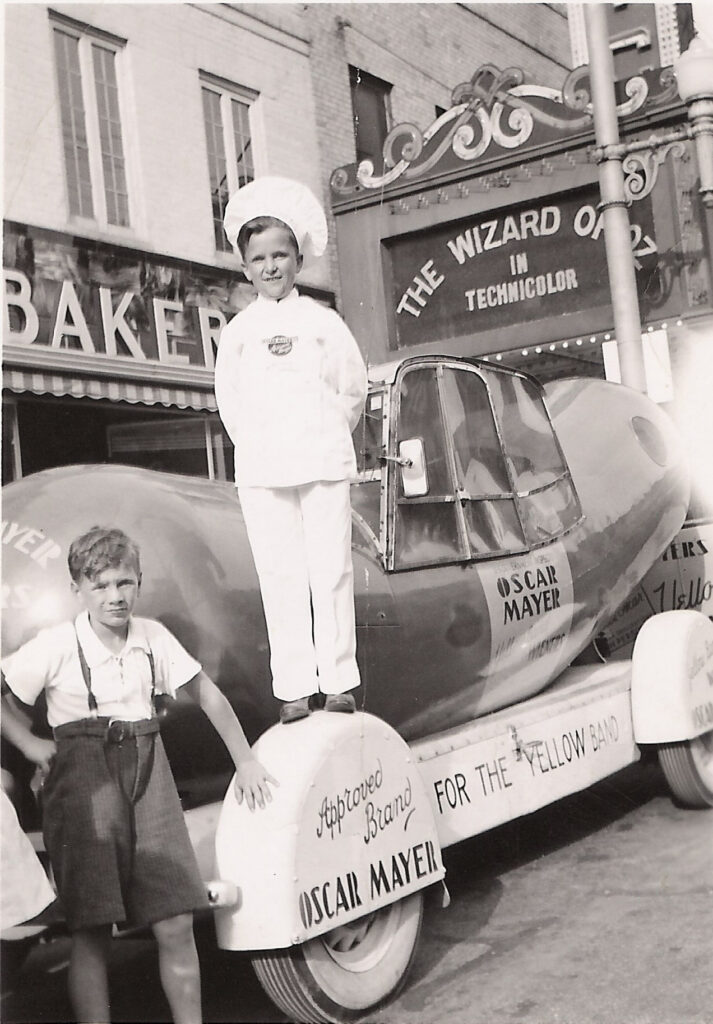
Meinhardt Raabe poses as “Little Oscar” atop the Oscar Mayer Wienermobile during the opening of The Wizard Of Oz at The Classic Theater in Watertown, Wisconsin in August of 1939. (Courtesy of The Watertown Historical Society)
During World War II, he took a break from celebrity appearances to serve in the Civil Air Patrol, drawing on his aviation skills. Throughout his life, he maintained ties to Wisconsin and donated generously to a Watertown facility for people with developmental disabilities.
Today, you can follow, follow, follow, follow County Road B to Meinhardt Raabe’s gravesite in a quiet Farmington cemetery. And you can meditate on the fact that, as we learned in “The Wizard of Oz,” dreams really do come true, as Raabe expressed on “Fresh Air.”
“Many people ask me, ‘Don’t you wish you were big?’ And I say, ‘Absolutely not!’ I feel I’ve had as interesting a time in my life as any big person.”
